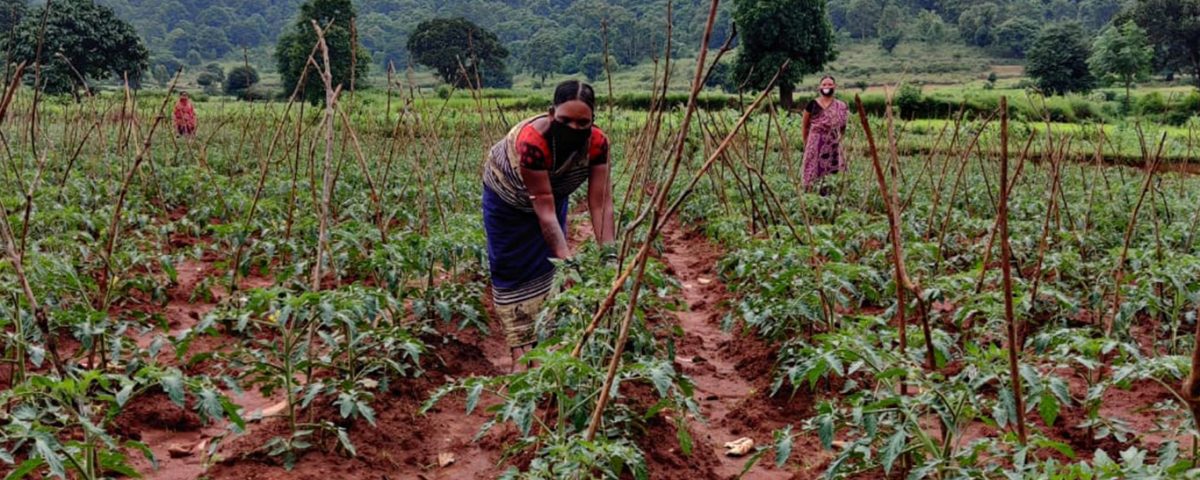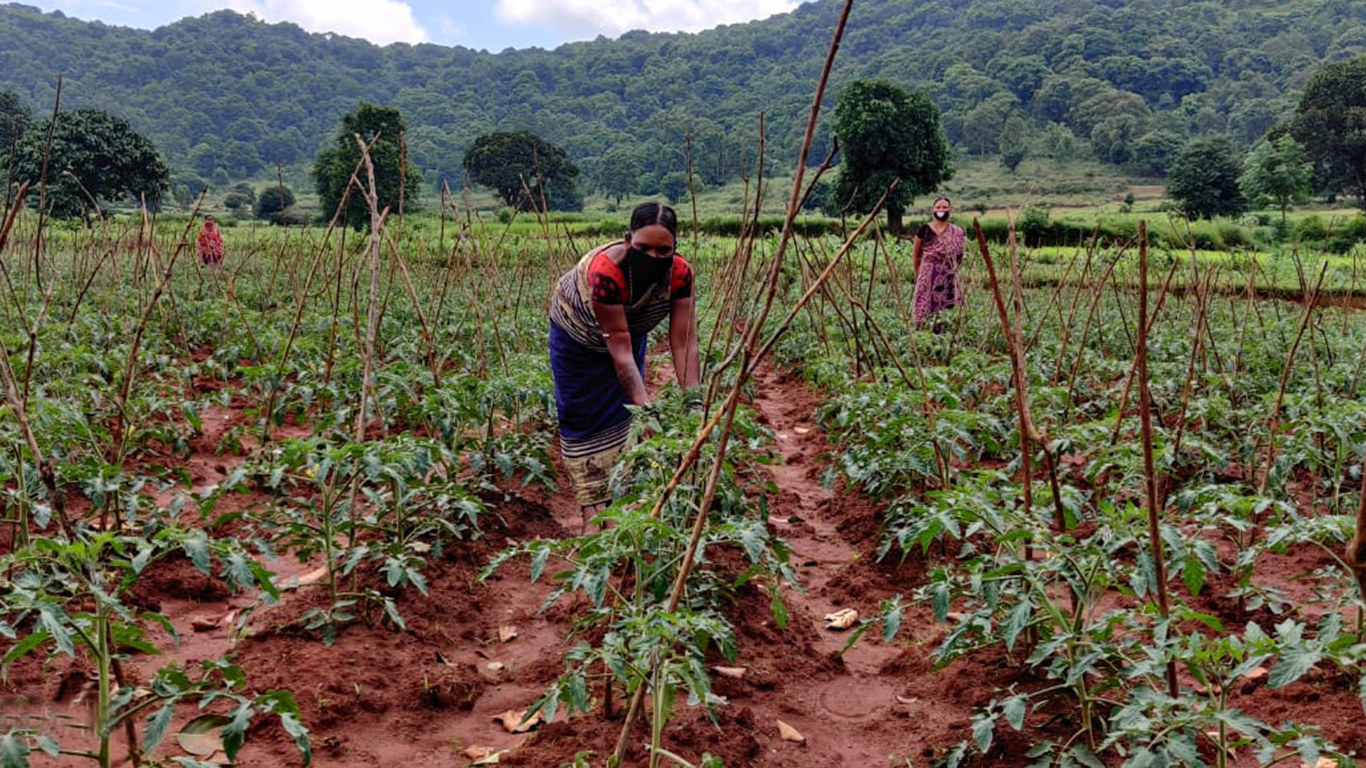



PRADAN is happy to announce "LEAP - Livelihoods Enhancement through market Access and women emPowerment", a two-year project supported by a philanthropic grant from the Walmart Foundation that aims to impact lives and livelihoods of 45,000 small holder women farmers (population of about 225,000 people), across the states of Jharkhand, Odisha and West Bengal in India. About 70 per cent of these target communities would be from the indigenous communities, recognised as Scheduled Tribes (ST) and Scheduled Caste (SC) communities and the remaining would be from the Other Backward Classes (OBC) communities.
Despite phenomenal leap in farm productivity with the Green Revolution, low productivity continues to plague lives of small holder farmers in the hilly, undulating, unirrigated regions especially in the eastern India. Moreover, lack of land ownership, little voice in decision making, almost no presence in more formal markets of both men and women from small holder farming families, little recognition of women as farmers in government programmes - all serve to 'invisibilize' women's role in farming. Empowering women becomes all the more critical with increasing feminization of agriculture.
The LEAP project, will support women who are already in Self-Help Groups (SHGs) and collectivised into informal production clusters, to take up agriculture and allied activities through synchronized production and market interface. These informal producer collectives are at the cusp of evolving into formal Farmer Producer Organisations (FPOs), interventions will be directed towards creating and strengthening of these evolving institutions and their ability to gainfully engage with the market players. PRADAN has created significant relationships with different stakeholders, especially with relevant government departments both at the national and state levels. PRADAN's participation in government programmes like the Agriculture Production Cluster (APC) project in Odisha, National Rural Centre for Livelihoods in Jharkhand, Usharmukti project in West Bengal, and strong linkage with commercial banks would offer necessary enabling conditions. Such collaborations will ensure steady flow of programme investments to improve the resource base and intensify the livelihood activities.
The project teams would operate in this multi-stakeholder setting and work for creating common grounds between the communities, the government, financial as well as market institutions to work together. Drawing experience from the above mentioned projects, the broad programme structure has the following key elements:
- Engagement with communities to strengthen smallholder production systems leading to marketable surplus of cereal, vegetable/ horticulture crops, goat and backyard poultry in compact clusters.
- Establishing community institutions to sustain the change process at the grassroots.
- Strengthening market systems for smallholder famers.
- Strengthening government and multi-sectoral coordination for smallholder farmer development.
Kathleen McLaughlin, President of the Walmart Foundation and Executive Vice President and Chief Sustainability Officer of Walmart Inc., said: “The global COVID-19 pandemic has increased pressure on India’s farmers, especially women farmers shouldering extra responsibilities in the household while seeing their incomes diminish overnight. We at the Walmart Foundation and our grantee partners are focused on supporting farmers to increase their resilience and sustainability for a better future.”
Speaking about the new partnership, Narendranath Damodaran, Executive Director, PRADAN said - “the Walmart Foundation and PRADAN share a vision of building sustainable communities by creating opportunities for marginalised people. With Project LEAP, we are working together to empower women farmers from remote geographies to set up FPOs and help them leapfrog to the modern economy via robust and fair commodity value-chains. I see this partnership as a winning coalition that will help make farmers’ aspirational goals a reality and in doing so rejuvenate rural economies that have been devastated by the pandemic.”

